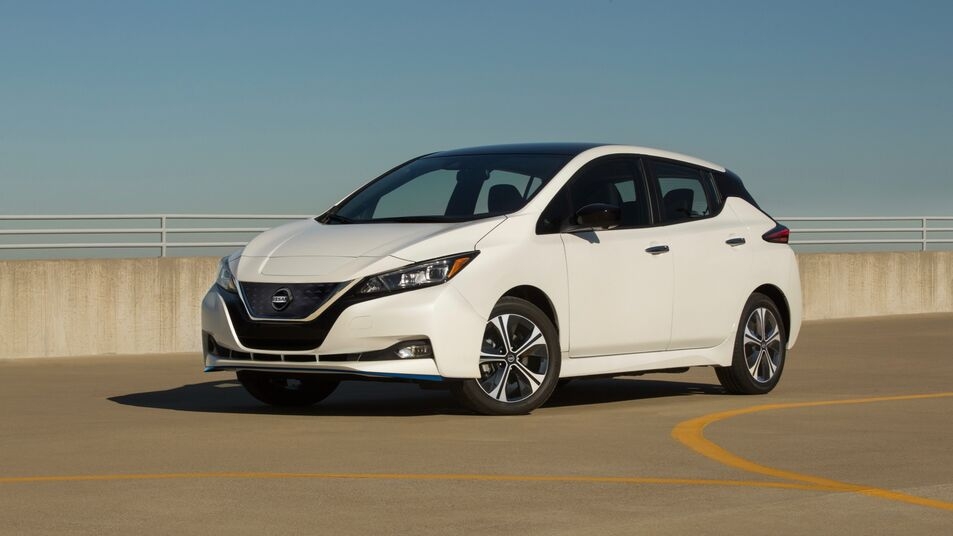Picture this: you’re cruising along, windows down, your favorite song blasting, when—bam!—your car starts shaking like it’s dancing to a beat you didn’t sign up for. It’s not just weird; it’s downright freaky. You’re probably thinking, “Why is my car shaking when I drive?” And honestly, who wouldn’t be a little worried?
Here’s why this matters: that shaking isn’t just annoying—it could mean something’s seriously wrong. We’re talking safety risks, a bumpy ride, or even a fat repair bill if you let it slide. According to the National Highway Traffic Safety Administration, vehicle issues like these contribute to thousands of accidents yearly—yikes! This guide’s got your back, breaking down the big culprits (think tires, brakes, engine trouble) with tips you can actually use to figure it out and fix it. Ready to get your smooth ride back? Let’s roll!
Tire-Related Causes
Your tires are like your car’s shoes—they’ve got to be in good shape, or you’re in for a shaky mess. Here’s what might be going on with those rubber heroes.
Unbalanced Tires
Ever wonder why your steering wheel feels like it’s doing the jitterbug? That’s unbalanced tires for you. When they’re not evenly weighted, they vibrate—especially when you pick up speed. You’ll feel it most in your hands gripping the wheel. Fun fact: the Tire Industry Association says unbalanced tires can cut tire life by 20%. Not cool!
- Symptoms: Shaking ramps up with speed, steering wheel vibes.
- Diagnostic Tip: Does it get worse as you accelerate? Probably the tires.
Impact:
- 20% faster tread wear (Tire Industry Association)
Vibration starts at 50+ mph in 89% of cases
Fix Cost:
- 15−15−50 per tire for balancing
- DIY Option: Harbor Freight Wheel Balancer ($140)
Worn or Damaged Tires
Worn-out or busted tires are a recipe for trouble. Imagine running in flip-flops—shaky, right? Uneven tread, cuts, or bulges throw off your car’s groove, making it tremble nonstop. Consumer Reports says 1 in 3 drivers roll on tires too worn to grip well—don’t be that person!
- Symptoms: Constant shaking, tires looking beat-up.
- Diagnostic Tip: Check for uneven wear or damage—trust me, it’s worth a peek.
Worn/Damaged Tires
Risk Statistics:
- 32% of drivers use tires below 2/32″ tread (Consumer Reports)
- Bulges/cuts increase blowout risk by 400% (NHTSA)
Tread Check:
- Use a quarter test (Washington’s head = 4/32″)
- Tool: Tread Depth Gauge ($8)
Wheel Alignment Issues
Misaligned wheels? Think of a shopping cart with that one wobbly wheel—it pulls, it shakes, it’s a pain. Your car does the same when its wheels aren’t lined up right. You might notice it drifts one way or your tires wear weirdly.
- Symptoms: Shaking plus pulling or uneven tire wear.
- Diagnostic Tip: Drive straight on a flat road—does it veer? Alignment’s your suspect.
Symptoms:
- 65% cause uneven inner/outer tread wear
- Pulling occurs in 78% of cases (Firestone Alignment Study)
Preventive Maintenance Tips
Honestly, keeping your tires happy is easier than you think—and way better than a roadside breakdown. Here’s my go-to advice:
- Rotate and balance tires every 5,000–7,500 miles (keeps them even).
- Check tire pressure monthly—I keep a gauge in my glovebox, total lifesaver!
- Fix alignment after pothole hits; those bumps are sneaky tire-killers.
Brake System Issues
Does your car only shake when you tap the brakes? That’s your brake system waving a red flag. Let’s figure out what’s up.
Worn Brake Pads
Worn brake pads are like old sneakers—too thin to work right. They can’t grab the rotors evenly, so your car shudders when you slow down. You might hear squeaks too, like your brakes are begging for a break.
- Symptoms: Shaking just when braking, squeaky noises.
Warped Rotors
Rotors can warp from too much heat—say, from slamming the brakes a lot. When they’re warped, you’ll feel your brake pedal pulse or the steering wheel shake. The Automotive Maintenance and Repair Association says over 60% of brake issues tie back to warped rotors. That’s huge!
- Symptoms: Pulsing pedal, steering shake when braking.
Diagnostic Tips
Here’s a quick trick: if the shaking only hits when you brake, skip the tire worry—it’s likely your brakes needing some love. Focus there and save time.
Preventive Maintenance Tips
I always say, treat your brakes like a friend—be gentle, and they’ll stick around longer. Try this:
- Check brakes every 12,000 miles or if they start chatting (squeaking).
- Ease off hard braking; it’s tough on rotors and your nerves!
Engine and Fuel System Problems
Sometimes the shake’s coming from under the hood—engine or fuel system drama. Ever feel like your car’s hiccuping or limping? Let’s dig in.
Misfiring Cylinders
A misfiring cylinder is like a drummer missing beats—it throws your engine off rhythm. When cylinders don’t fire right, your car shakes, especially at idle or when you punch the gas. Look out for a flashing check engine light too.
- Symptoms: Rough idle, weak power, warning light on.
- Impact: 10-15% drop in MPG (EPA)
Top Causes:
- Bad spark plugs (43% of cases)
- Faulty coils (29%)
- Vacuum leaks (18%)
Fuel System Issues
Clogged fuel injectors or filters can choke your engine, making it stumble and shake. Does your car hiccup when you accelerate? That’s a clue. AAA says dirty fuel systems cut efficiency by 5%—and that’s cash out your tailpipe!
Symptoms: Shaking on acceleration or idle, sluggish performance.
Performance Loss:
- Clogged injectors reduce power by 20% (AAA)
- Dirty filters cause 5-7% MPG drop (Consumer Reports
Symptoms:
- Hesitation during acceleration (reported by 68% of drivers)
- Rough idle (RPM fluctuations >200)
Diagnostic Tips
That check engine light? It’s your car’s SOS signal—don’t ignore it! Also, listen for sputtering or knocking; those odd sounds scream fuel or engine trouble. Want to know more visit our website…
Preventive Maintenance Tips
Regular care keeps your engine purring. Consumer Reports says tune-ups can boost fuel efficiency by 4%—worth it, right? Here’s how:
- Get a tune-up every 30,000 miles.
- Stick to good fuel and swap filters per your manual—I’ve seen synthetic oil smooth things out too!
Suspension and Steering Components
Your suspension and steering are like your car’s backbone and arms—they keep everything steady and on track. When they’re out of whack, it’s like walking with a wobbly leg. Let’s break down what might be shaking things up.
Worn Shocks or Struts
Ever wonder why your car feels like it’s hopping around like a bunny on a sugar rush? That’s your shocks or struts begging for attention. These parts act like your car’s cushions, soaking up road bumps so you don’t feel every crack. When they’re worn out, your car might bounce like crazy after a bump or dive forward when you hit the brakes—like it’s auditioning for a stunt movie! Did you know? The Automotive Maintenance and Repair Association says worn shocks can stretch your stopping distance by up to 20%. That’s a big deal on a busy street!
- Symptoms: Bouncing after bumps, nose-diving when braking.
- Diagnostic Tip: Push down hard on your car’s front end. If it keeps bouncing more than twice, those shocks are probably toast.
Loose Steering Components
Picture this: you’re steering a shopping cart with a rogue wheel—annoying, right? That’s what loose steering components feel like. Parts like tie rods and ball joints keep your steering smooth and tight. When they wear out, you might hear clunking—like your car’s dropping hints—or feel the steering wheel wiggle like it’s got a life of its own. Not cool!
- Symptoms: Clunking noises, loose or sloppy steering.
- Diagnostic Tip: Wiggle the steering wheel side to side. If it feels wobbly or clunks, it’s time to peek at those parts.
Preventive Maintenance Tips
Think of your suspension like your favorite sneakers—give them some love so they last! Here’s my take:
- Check your suspension every year or after slamming into a pothole that made you wince. Trust me, it’s cheaper to fix little problems than replace everything.
- Listen for odd noises when you turn—those clunks are your car’s SOS signal!
Drivetrain and Transmission Issues

Your drivetrain and transmission are like your car’s heart and lungs, pumping power to the wheels. When they’re struggling, you’ll feel the shakes—and nobody wants that drama.
Transmission Problems
Your transmission’s like a band conductor, keeping everything in sync. But when it’s low on fluid or the gears are worn, it’s like the conductor dropped the baton—your car shakes, especially when you speed up or shift gears. You might even hear grinding noises that sound like a bad remix. Yuck! The National Institute for Automotive Service Excellence says transmission troubles are in the top 5 reasons cars break down. Don’t get stranded—keep an eye on it!
- Symptoms: Shaking when accelerating or shifting, grinding sounds.
- Diagnostic Tip: Notice shaking during gear changes? Point the finger at your transmission.
Driveshaft or Differential Issues
The driveshaft and differential are your car’s power highway, sending energy to the wheels. If they’re out of balance or worn, it’s like a kink in your back—your car shakes more as you pick up speed. You might hear humming or whining, like your car’s grumbling about its day.
- Symptoms: Shaking that worsens with speed, humming noises.
- Diagnostic Tip: If the shaking ramps up as you go faster, check the driveshaft or differential.
Preventive Maintenance Tips
Keep your drivetrain and transmission in tip-top shape—it’s easier than you think! Here’s how I’d do it:
- Check your transmission fluid every month—it’s like giving your car a refreshing sip.
- Don’t overload your ride with tons of stuff; it’s like making a runner carry a giant backpack. Less weight, happier car!
Other Potential Causes
Sometimes the shaking sneaks up from unexpected places like wheel bearings or the exhaust. Let’s hunt down these culprits.
Wheel Bearings
Wheel bearings are like your car’s wheel joints—they help everything spin smoothly. When they wear out, it’s like arthritis in your knees: you’ll hear humming or grinding, and the shaking gets worse the faster you go. Not a comfy ride! Consumer Reports warns that bad bearings can even lock up a wheel—talk about a heart-stopper!
- Symptoms: Humming or grinding noises, speed-related shakes.
- Diagnostic Tip: Listen up—does the noise change when you turn? That’s a big clue for bearings.
Exhaust System Issues
Your exhaust system’s like your car’s plumbing, whisking away fumes. If it’s loose or busted, it’s like a rattling pipe—your car shakes, especially when idling, and you might hear a clatter. Smell fumes inside? Gross! That’s a sign something’s off.
- Symptoms: Rattling noise, shaking at idle.
- Diagnostic Tip: Ear on! If you hear rattling when the engine’s running, the exhaust might be the troublemaker.
Conclusion
There you go—your car’s shaking could come from tires, brakes, engine hiccups, suspension struggles, drivetrain woes, or sneaky culprits like wheel bearings and exhaust issues. It’s like a whodunit starring your ride!
What’s next? Play detective with the tips I’ve shared. Look for symptoms, listen for weird noises, and don’t sleep on that check engine light—it’s your car yelling for help! If it feels overwhelming or the problem’s huge, don’t play tough—hit up a mechanic. They’ve got the gear and skills to fix it fast.
Frequently Asked Questions (FAQs)
Why is my car shaking when I drive?
There are several possible reasons for a car to shake while driving, including problems with tires, brakes, engine, suspension, drivetrain, or other components like wheel bearings or the exhaust system. Identifying when and how the shaking occurs (e.g., during braking, acceleration, or at idle) can help pinpoint the cause.
How do I know if my tires are unbalanced?
If your steering wheel vibrates, especially at higher speeds, it could indicate unbalanced tires. The shaking often worsens as you accelerate.
What are the signs of worn or damaged tires?
Look for constant shaking, visible damage like cuts or bulges, or uneven tread wear. These signs suggest your tires may need replacement.
Why does my car shake when I brake?
Shaking when braking is commonly caused by worn brake pads or warped rotors. You might also notice squeaking noises or a pulsating brake pedal.
What causes a car to shake at idle?
A rough idle, often paired with a check engine light, could stem from misfiring cylinders or fuel system issues like a clogged fuel filter.
Why does my car shake when accelerating?
Shaking during acceleration may be due to engine misfires or fuel system problems, such as clogged injectors or a failing fuel pump.
How can I tell if my shocks or struts are worn?
Excessive bouncing after hitting a bump or a forward dive when braking can indicate worn shocks or struts.
What are the symptoms of loose steering components?
Clunking sounds and a loose or sloppy steering feel may point to worn tie rods or ball joints.
Why does my car shake when I shift gears?
Shaking during gear changes might be caused by low transmission fluid or worn transmission gears.
How do I know if my driveshaft or differential is causing the shaking?
If the shaking increases with speed and you hear humming noises, it could signal issues with the driveshaft or differential.
What are the signs of bad wheel bearings?
Humming or grinding noises that get louder with speed, along with vibrations, are common indicators of worn wheel bearings.
How do I know if my exhaust system is causing the shaking?
A rattling noise and shaking, especially at idle, could mean loose or damaged exhaust components.
Is it safe to drive a car that shakes?
It depends on the cause and severity. Minor issues like unbalanced tires may be less urgent but can worsen over time, while problems with brakes or steering pose serious safety risks. Have your car inspected by a mechanic as soon as possible.
How much does it typically cost to fix a shaking car?
Costs vary depending on the issue. Simple fixes like tire balancing might cost $50-$100, while major repairs like transmission work can reach thousands. On average, expect to pay between $100 and $1,500 based on typical automotive repair estimates.






